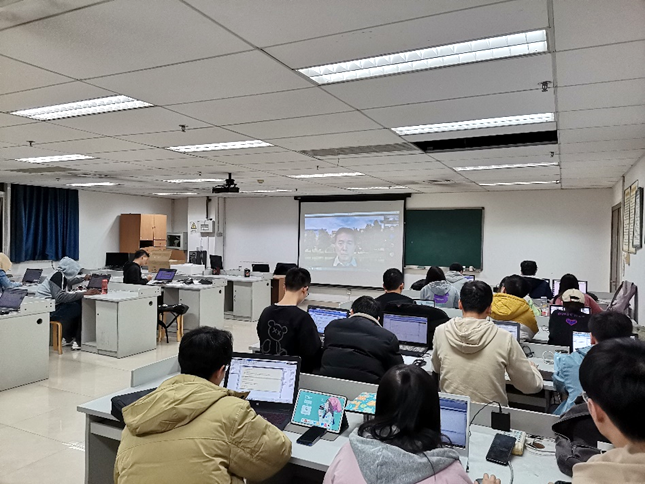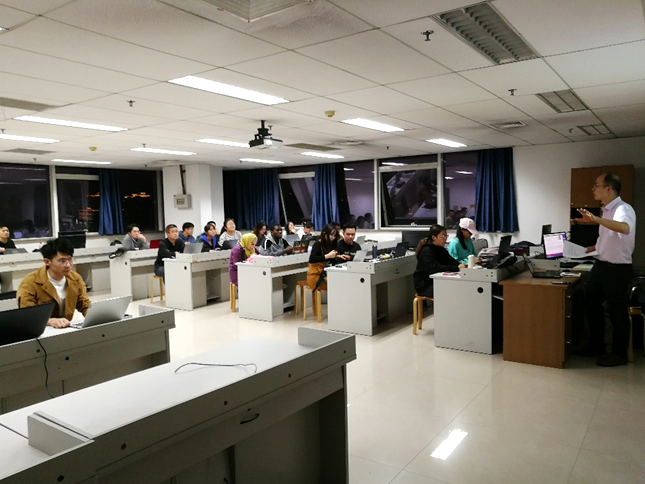"Wireless Technologies for 5G & Beyond" course is the first batch of global academic online courses for Postgraduates in CQU in July 2021. It is jointly conducted by School of Microelectronics and Communication Engineering and 5G Innovation Center of Surrey University in UK. Professor Pei Xiao, the foreign lecturer, is a world-renowned 5G technology expert and served as the technical manager of 5G Innovation Center of Surrey University, the world's earliest and largest research center dedicated to 5G wireless network research and development.
This course is an English-taught professional elective course for Chinese and international doctoral and master students. The course mainly covers the basic theories and key technologies of 5G and next generation communication, such as Multiple Input Multiple Output (MIMO) technology, millimeter wave communication, beamforming, Non Orthogonal Multiple Access (NOMA)-Sparse Code Multiple Access, as well as the main challenges, solutions and practical cases.

The course was officially launched in October 2021, with 27 students (doctor, master, including international students). Although the School had previously offered many all English courses for Chinese and international students, it was the first time for foreign teachers to teach in real time. In order to ensure the teaching effect and quality, the students in class were concentrated in the multimedia classroom to ensure the teaching effect; the course coordinator followed the course during the whole process.

The instructor shared courseware, videos, exercises before and after class to facilitate students' preview and consolidation. At the same time, students were required to be familiar with English reading of professional vocabulary before class to ensure that they can understand professional knowledge in class; After class: review the courseware and listen to the lecture video repeatedly to improve the professional knowledge and English level at the same time.
Instructor asked students more questions in class, especially when explaining key knowledge points; often inspired students to think and answer through guided questions and solving questions. Students can answer directly or write in the dialog box, and the teacher will comment after seeing it. Its purpose is not to embarrass students, but to stimulate students' thinking and encourage and promote students to actively participate in classroom teaching.
Simulation practices were arranged every 2-3 classes, so that students can complete the simulation program by themselves and give the performance curve and simulation results, so as to deepen students' understanding and mastery of the knowledge points of each course. In the middle of the course, each student must complete a small project in English. The students formed a team to complete the simulation program in four weeks after class, write the project report and reply in English. At the end of the course, a full English final exam will be arranged to test the effect of teaching.
After class, the school conducted a questionnaire survey on the course effect. The students were satisfied with the learning effect and hoped to conduct more similar international courses, expand the vision of globalization and connect with the world.
The goal of students' curriculum learning was not only the final examination results, but also their usual learning experience. From the performance in class and after class, students enjoyed the usual learning process. They can not only learn the most cutting-edge professional knowledge without leaving home, but also immersively experience the teaching environment in English and the teaching methods of foreign universities, which has laid a solid foundation for the international training of students and further study abroad.